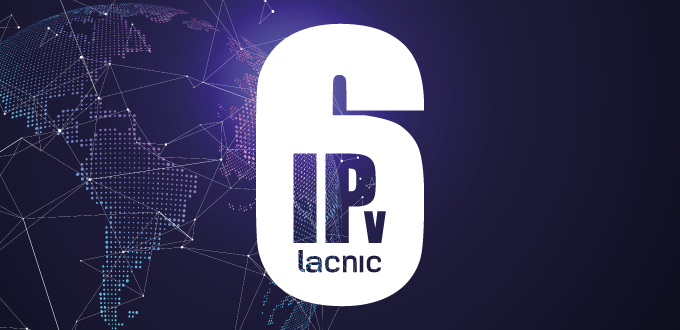Strategic Advantages of IPv6
September 30, 2021

Ten years from now, there will be advantages in having IPv6-only Internet content, services, or architecture. These words were shared by Lee Howard during the webinar titled The Strategic Role of IPv6 in Digital Transformation.
Organized by CITEL and LACNIC, this online seminar stressed the strategic role of IPv6 in connecting the millions of people who have yet to join the Internet, as well as the fact that this protocol will allow the existence of a huge number of services in the future.
“Ten years is a long time in the evolution of the Internet. Think about the last 10 years and how much the way we use the Internet has changed. Today, we are much more mobile. A decade from now, certain advantages will only be available in IPv6,” Howard noted.
In his words, the future of the Internet goes hand in hand with IPv6. Howard also observed that IPv4 is becoming increasingly expensive, while IPv6 prices are going down. “There has been a surprising increase in the price of IPv4 addresses. While IPv4 addresses used to cost 20 dollars, they are currently selling for 40 dollars and will probably reach 70 or 80 dollars by the end of the year,” he added.
The problem, Howard explained, is that organizations that haven’t yet deployed IPv6 “have no choice and will have to pay whatever IPv4 sellers ask of them.” He also stressed that IPv6 is faster than IPv4 and showed data to support this.

Howard then added that security represents another advantage for companies, explaining that NAT hides many users behind a single Internet address.
During the webinar, statistics were presented to show how the pandemic has boosted Internet utilization rates and led to an estimated growth in Internet traffic of approximately 30% to 40%. In the opinion of LACNIC CTO Carlos Martínez, what happened in 2020 was a unique event in the history of the Internet. “There were voices warning of an Internet collapse that never happened.” As for IPv6, Martínez believes that it will eliminate intermediary boxes and take the Internet back to what it was 20 years ago.
(Free access, no subscription required)
The current situation poses several challenges for a future where the Internet will be a basic tool for businesses, governments, and citizens alike. In this sense, LACNIC CEO Oscar Robles noted that, if governments in the region are considering developing technology projects to connect areas that are not yet connected, they should consider the challenge of IPv6.
Robles advocated for #IPv6 cooperation-based deployment processes, as these allow bringing together multiple stakeholders and promote more inclusive and orderly deployments.
